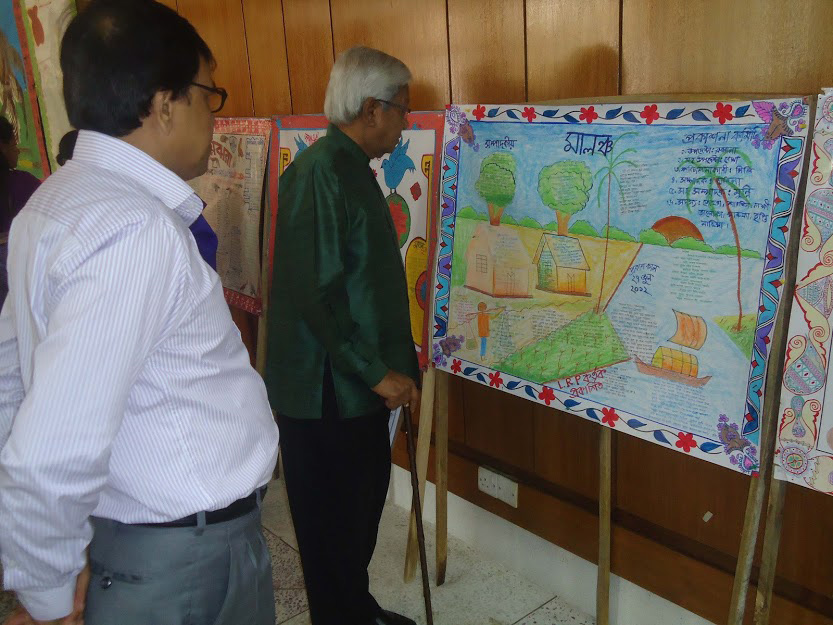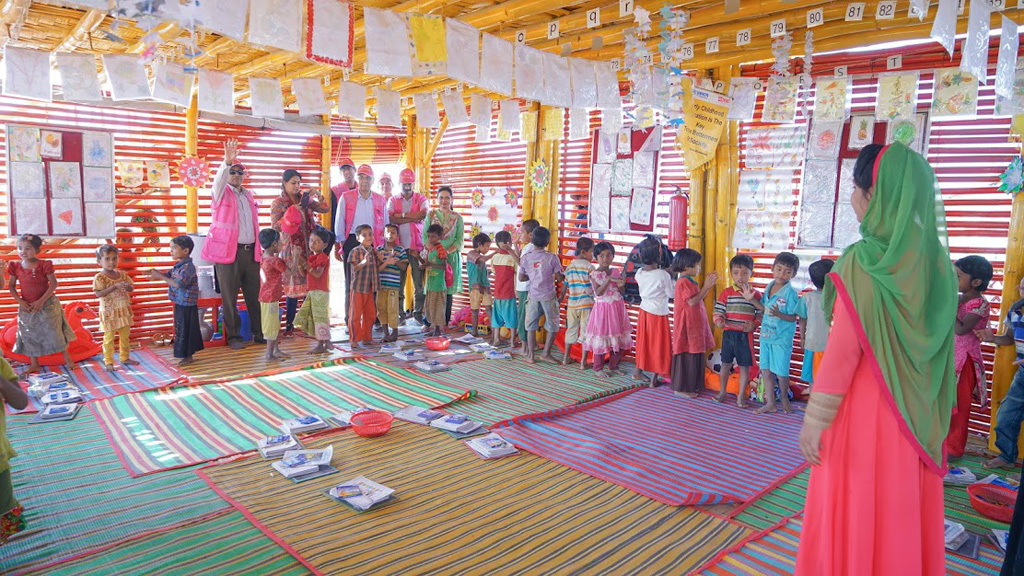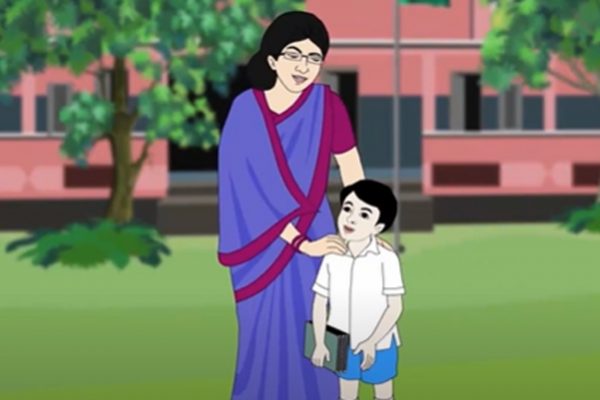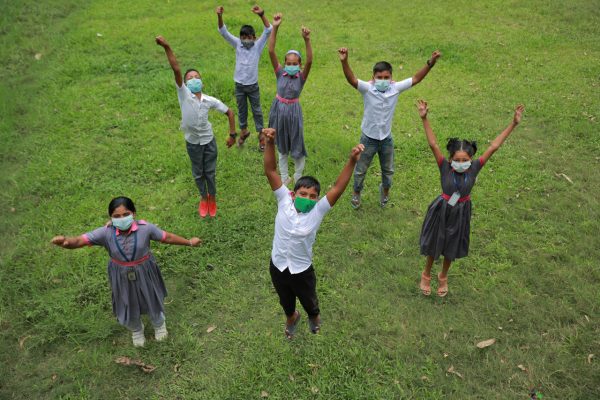One man’s journey to get education to every child in Bangladesh: Dr Safiqul Islam
Reading Time: 4 minutes
Dr Safiqul Islam spent 30 years building BRAC’s education programme. He joined BRAC in 1987, as a spirited young patriot who wanted to change his country, and, through his work with BRAC and Bangladesh’s education sector, he did. Bangladesh’s education sector has undergone significant transformation during the last three decades, and Dr Islam was a driving force behind them. Dr Islam worked tirelessly to materialise Sir Fazle Hasan Abed’s vision of a world free of inequality, through inspiring education practitioners across the world to get education to every child.
Bangladesh has seen a paradigm shift in the education sector. The year-wise dropout rate decreased from 47% to 19% between 2005-2017, and there are now more girls than boys in school. Dr Islam is one of the people who led these changes, and his legacy continues to inspire new generations of education leaders.
When BRAC began its journey in the newly-liberated Bangladesh, the food/population nexus was the most worrying issue in the country. Education took a back seat. There were several fundamental problems, with inadequate geographical reach of the formal education system being key amongst them. Many villages did not have a primary school near them, and parents did not feel safe letting their children travel for hours to and from a distant school.
Leaving no one behind
BRAC supported the government’s efforts in education by bringing schools to every village, through over 40,000 informal ‘one-teacher one-room’ primary schools. The effort started, after meticulous research and piloting, with 22 schools in Bangladesh in 1985.
No one was left behind, through the schools, and a wide variety of other initiatives implemented to complement them. Mother-tongue based multilingual education opened opportunities for children in Indigenous communities to learn in their own languages. Adolescent development centres were safe spaces that provided access to leadership and life-skill based training, sports as well as performing arts. In secondary schools, teachers were trained, gifted students were turned into mentors for others and education was delivered through interactive digital content. Multi-purpose community learning centres, boat schools and mobile libraries increased access to learning and encouraged reading habits in the remotest regions.
BRAC University was established in 2001 as a crucial extension of BRAC’s work in education, where scholarships are offered in several categories, including academic merit, economic constraints, and students with disabilities.
Throughout all of these initiatives, a few threads were common – learning was joyful, lifelong learning was encouraged and all learning was value-driven, with the ultimate goal to build active citizens.
Thirty years on, over 1,200 NGOs in Bangladesh have adopted the one-room school model, the Government of Bangladesh has adopted BRAC’s second chance at education model and BRAC schools have crossed geographical borders. Almost 15 million students have graduated from BRAC schools in Bangladesh, Africa and Asia.
BRAC already had the makings of a comprehensive education system when Dr Islam joined, but it was under his leadership that it expanded significantly. Once accessible only by the privileged, basic education became accessible for children from families with low incomes and families living in extreme poverty; as well as for children living in hard-to-reach and marginalised communities.
Read more: Educating a generation: Bangladesh’s barefoot teachers
Dr Islam received his PhD in Economics from the Hungarian Academy of Sciences in 1985. He held a variety of positions at BRAC, including senior research economist. He joined the education programme in 1995, and became its director in 2004, a position he held until 2021.

Dr Islam visiting a BRAC school in Bangladesh. © BRAC
Dr Islam always strived to make education an exciting experience for children. In his words, “Working for BRAC feels like you are connected to millions of children. A million children who have a dream to realise, and a million children who are enjoying their classrooms because they are full of fun”.
BRAC schools became a place where children were not compelled to study, but a place where they wanted to study. They became safe havens for children to leave the harsh realities of their struggles behind and just be children, where they could sing, dance, and paint.
Read more: Primary schools in Bangladesh to go digital, reaching 20 million students
Sir Fazle Hasan Abed, BRAC’s Founder, set the bar high
“Our generation’s biggest luck was to have gotten the chance to work with and learn from someone like Sir Fazle. To watch, observe, and feel for something from close proximity – is what we learnt from him.” – Dr Safiqul Islam

Dr Safiqul Islam and Sir Fazle Hasan Abed looking at the artwork of students at BRAC schools in Bangladesh. © BRAC
Dr Islam was deeply connected with Sir Fazle and worked to achieve his vision of a world where everyone has opportunities throughout their career. He learnt from Sir Fazle and transferred the knowledge to each generation of leadership.
In 2009, when BRAC had more than 1.8 million children in over 64,000 primary and pre-primary schools, Sir Fazle asked a question: “Okay, Safiq bhai, tell me what percentage of our students are children of BRAC staff?” I understood then was that the quality of education in our schools needs to be so good that our staff would enrol their children in them. ” said Dr Islam.
From new graduates to staff members who spent years working at BRAC, Dr Islam listened intently to everyone and valued their input. “The BRAC team is two very distinct generations. The young people are here, fresh out of university. And then there is the generation of people who have been with BRAC for quite a long time. So, it is an interesting space to exchange experiences and understand how the young generation think about the future of BRAC, how they really want to lead the country, and to learn from what has been learnt so far”, Dr Islam said.

Dr Islam participating in a class in a BRAC school in the Rohingya camps, Cox’s Bazar, Bangladesh. © BRAC
Read more: Back to school again: Assessing what students missed during school closings for COVID-19
In March 2021, Safiq retired as the director of BRAC’s education programme. His legacy will continue to inspire BRAC to think differently, to show compassion to all and to dream big. BRAC is grateful for more than three decades of relentless service from Dr Islam.
Read Dr Safiqul Islam’s blog pieces on The Good Feed.
Fahad Bin Touhid is the Communications Portfolio Lead for BRAC Education Programme, and Miftahul Jannat Chowdhury is a Content Specialist at BRAC Communications.
BRAC started working in education in 1985. Its high quality, affordable, scalable schooling model has made it the world’s largest provider of private secular education. Its holistic approach to lifelong learning, addressing educational needs from early childhood to higher academic levels supported over 15 million students across five countries to graduate to date.





